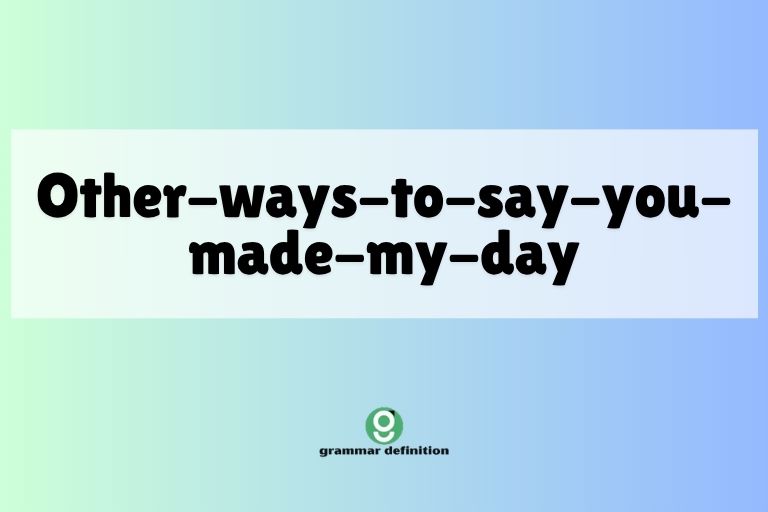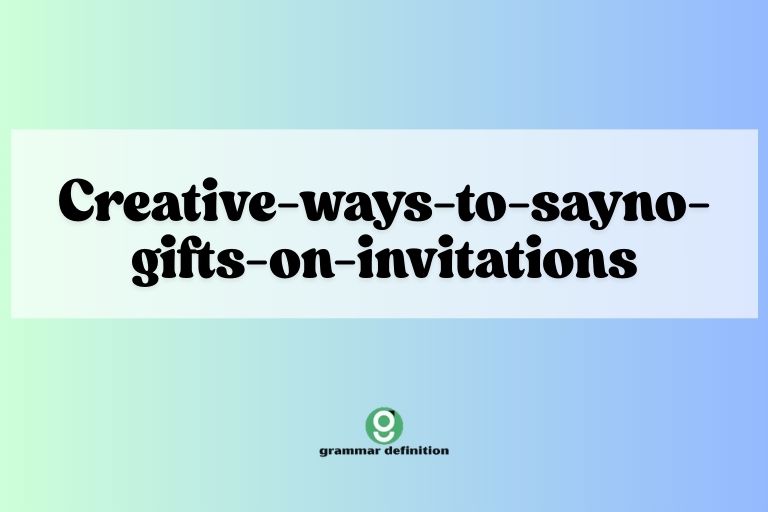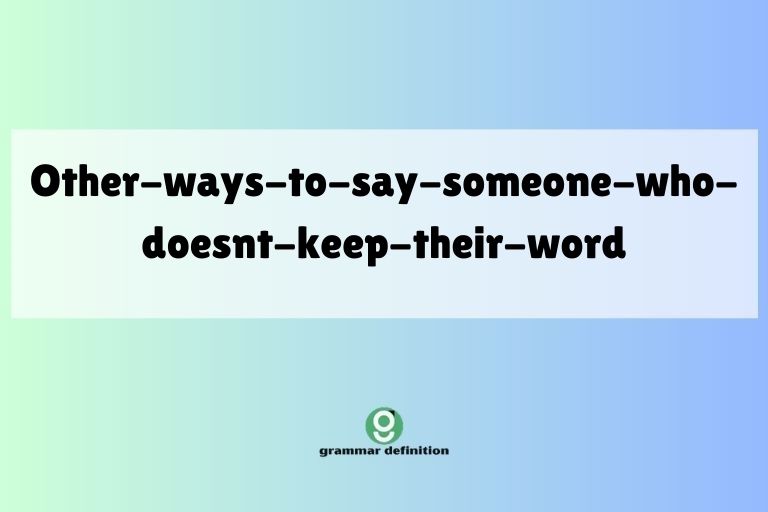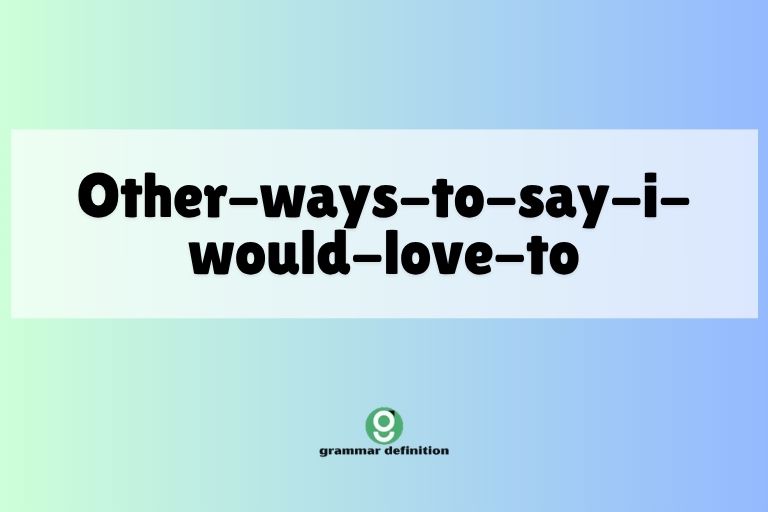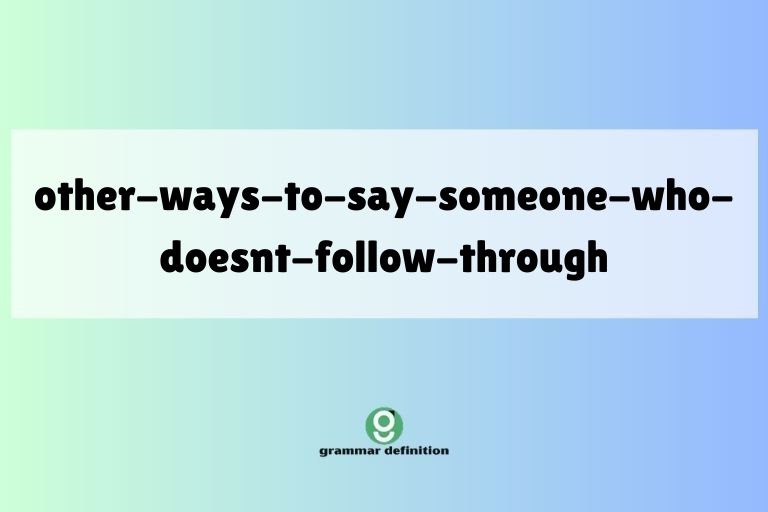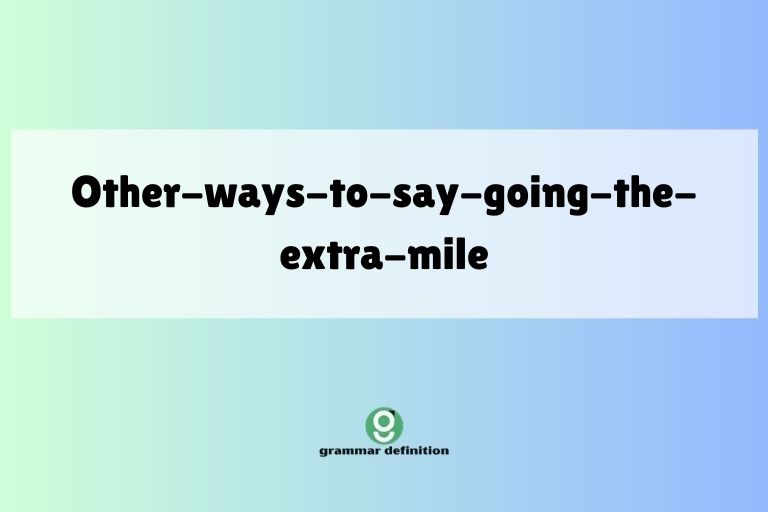“Short End of the Stick”: Alternative Phrases & Usage
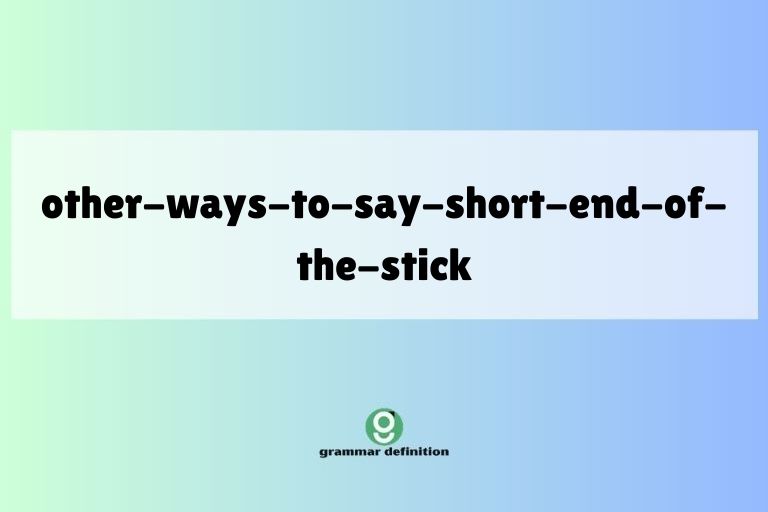
The idiom “short end of the stick” describes being at a disadvantage, receiving unfavorable treatment, or getting the worse part of a deal. Understanding alternative phrases not only enriches your vocabulary but also allows you to express nuances that the original idiom might miss.
This article explores a variety of expressions that convey similar meanings, examining their specific contexts and usage. This guide is invaluable for English language learners aiming to improve their expressive ability, writers seeking stylistic variation, and anyone interested in the subtleties of idiomatic English.
Table of Contents
- Definition: The Short End of the Stick
- Structural Breakdown
- Synonyms and Alternatives
- Examples
- Usage Rules
- Common Mistakes
- Practice Exercises
- Advanced Topics
- FAQ
- Conclusion
Definition: The Short End of the Stick
The idiom “to get the short end of the stick” means to receive the worse part of an agreement, deal, or situation; to be treated unfairly; or to be at a disadvantage. It implies that something has been divided unequally, and you have received the less desirable portion.
The phrase evokes a sense of injustice or bad luck, suggesting that circumstances have conspired against you.
Classification: This is an idiom, a phrase whose meaning cannot be derived from the literal meanings of the words themselves. Idioms often rely on cultural context and figurative language.
Function: The idiom functions as a concise way to express disadvantage or unfairness. Instead of elaborating on the specific ways someone has been wronged, you can simply state that they “got the short end of the stick.”
Contexts: The phrase is suitable for both formal and informal contexts, although it is generally more common in spoken and written English than in highly formal documents. It can be used to describe situations in business, personal relationships, politics, or any other area where resources or opportunities are distributed.
Structural Breakdown
The structure of the idiom is relatively straightforward: “to get” (verb) + “the short end of the stick” (noun phrase). The verb “to get” indicates the action of receiving or experiencing something.
The noun phrase “the short end of the stick” is the object of the verb and represents the undesirable outcome.
The “stick” imagery is crucial to understanding the idiom. Imagine a stick that is broken into two pieces.
The person who receives the shorter piece is disadvantaged because they have less than the other person. The idiom effectively encapsulates this visual metaphor.
The idiom frequently appears in the past tense (“got the short end of the stick”) to describe a past event or situation. However, it can also appear in the present or future tense to discuss ongoing or anticipated disadvantages (“He always gets the short end of the stick,” or “If we don’t negotiate carefully, we’ll get the short end of the stick”).
Synonyms and Alternatives
While “short end of the stick” is a common idiom, many other phrases convey similar meanings. These synonyms and alternatives can add variety and precision to your writing and speech.
Here are some categories and examples:
Being Disadvantaged
These phrases emphasize the state of being at a disadvantage compared to others.
- At a disadvantage: A general term for being in an unfavorable position.
- Up against it: Facing difficult circumstances or challenges.
- Behind the eight ball: In a difficult or unfavorable situation, often due to one’s own actions.
- On the back foot: In a defensive or reactive position, lacking initiative.
- Losing out: Failing to receive a benefit or advantage that others are getting.
Being Unfairly Treated
These phrases highlight the injustice or lack of fairness in a situation.
- Getting a raw deal: Being treated unfairly or dishonestly.
- Being given the runaround: Being treated evasively or deceptively, often to avoid fulfilling a request or obligation.
- Getting the worst of it: Experiencing the most negative consequences or outcomes.
- Drawing the short straw: Being chosen for an undesirable task or duty.
- Being left holding the bag: Being held responsible for something that is not your fault.
Being Unlucky
These phrases suggest that bad luck is the primary cause of the unfavorable outcome.
- Having bad luck: Experiencing a series of unfortunate events.
- Being jinxed: Believing that you are under a spell of bad luck.
- Drawing the short straw: (Can also imply bad luck in addition to unfairness)
- Down on your luck: Experiencing a period of misfortune, often related to finances or circumstances.
- Hard-up: Suffering from poverty or hardship.
Being a Victim
These phrases emphasize that someone has been harmed or exploited by others or circumstances.
- Being taken advantage of: Being exploited or used unfairly by someone.
- Being exploited: Being used unfairly for someone else’s benefit.
- Being a scapegoat: Being blamed for the mistakes or wrongdoings of others.
- Bearing the brunt: Suffering the worst effects of something.
- Being made a patsy: Being easily fooled or manipulated, often to take the blame for something.
Examples
The following examples illustrate how these alternative phrases can be used in various contexts. Each section provides numerous sentences demonstrating the nuances of each expression.
Disadvantaged Examples
These examples show situations where someone is at a disadvantage.
This table shows examples of using synonyms for “short end of the stick” that focus on being disadvantaged.
| Original Sentence | Alternative Sentence |
|---|---|
| Small businesses often get the short end of the stick when competing with large corporations. | Small businesses are often at a disadvantage when competing with large corporations. |
| New employees often get the short end of the stick when it comes to promotions. | New employees are often up against it when it comes to promotions. |
| Without a good education, you’re likely to get the short end of the stick in the job market. | Without a good education, you’re likely to be behind the eight ball in the job market. |
| Developing countries often get the short end of the stick in global trade agreements. | Developing countries are often on the back foot in global trade agreements. |
| Those who don’t speak the local language often get the short end of the stick. | Those who don’t speak the local language often lose out. |
| In the divorce settlement, she felt she got the short end of the stick. | In the divorce settlement, she felt she was at a disadvantage. |
| He always gets the short end of the stick because he’s too trusting. | He always loses out because he’s too trusting. |
| When resources are scarce, the poorest communities often get the short end of the stick. | When resources are scarce, the poorest communities are often up against it. |
| In this project, I feel like I’m getting the short end of the stick with all the extra work. | In this project, I feel like I’m at a disadvantage with all the extra work. |
| Smaller teams often get the short end of the stick when competing for funding. | Smaller teams are often behind the eight ball when competing for funding. |
| As a freelancer, you sometimes get the short end of the stick with delayed payments. | As a freelancer, you sometimes find yourself on the back foot with delayed payments. |
| She felt that she always got the short end of the stick in her family. | She felt that she always lost out in her family. |
| The new regulations mean that small farmers will get the short end of the stick. | The new regulations mean that small farmers will be at a disadvantage. |
| He felt he got the short end of the stick when his proposal was rejected. | He felt he was up against it when his proposal was rejected. |
| If you don’t negotiate, you’ll get the short end of the stick. | If you don’t negotiate, you’ll be behind the eight ball. |
| The company restructuring meant some departments got the short end of the stick. | The company restructuring meant some departments were on the back foot. |
| In the merger, the smaller company got the short end of the stick. | In the merger, the smaller company lost out. |
| Without legal representation, you might get the short end of the stick. | Without legal representation, you might be at a disadvantage. |
| She felt she got the short end of the stick in her career due to gender bias. | She felt she was up against it in her career due to gender bias. |
| The students from underprivileged backgrounds often get the short end of the stick. | The students from underprivileged backgrounds are often behind the eight ball. |
Unfairly Treated Examples
These examples illustrate situations where someone is treated unfairly.
This table provides examples of sentences using alternatives to “short end of the stick” that emphasize unfair treatment.
| Original Sentence | Alternative Sentence |
|---|---|
| He felt he got the short end of the stick when his boss took credit for his work. | He felt he got a raw deal when his boss took credit for his work. |
| She felt she got the short end of the stick when she was constantly asked to do extra tasks without recognition. | She felt she was being given the runaround when she was constantly asked to do extra tasks without recognition. |
| In the lawsuit, the smaller company got the short end of the stick. | In the lawsuit, the smaller company got the worst of it. |
| I drew the short end of the stick when I was assigned the worst shift. | I drew the short straw when I was assigned the worst shift. |
| After the scandal, he was left holding the bag. | After the scandal, he was left holding the bag. |
| She got the short end of the stick when her partner didn’t contribute equally. | She got a raw deal when her partner didn’t contribute equally. |
| The customers felt they got the short end of the stick with the poor service. | The customers felt they were being given the runaround with the poor service. |
| In the negotiation, he got the short end of the stick. | In the negotiation, he got the worst of it. |
| Someone has to draw the short straw and clean up the mess. | Someone has to draw the short straw and clean up the mess. |
| The intern was left holding the bag after the project failed. | The intern was left holding the bag after the project failed. |
| He felt he got the short end of the stick when his ideas were ignored. | He felt he got a raw deal when his ideas were ignored. |
| They felt they were getting the short end of the stick with the constant delays. | They felt they were being given the runaround with the constant delays. |
| The community got the short end of the stick when the factory closed down. | The community got the worst of it when the factory closed down. |
| She drew the short straw and had to work during the holidays. | She drew the short straw and had to work during the holidays. |
| The manager left the team holding the bag when he resigned. | The manager left the team left holding the bag when he resigned. |
| He got the short end of the stick because he was new to the company. | He got a raw deal because he was new to the company. |
| The patients felt they were getting the short end of the stick with the long waiting times. | The patients felt they were being given the runaround with the long waiting times. |
| In the restructuring, some employees got the short end of the stick. | In the restructuring, some employees got the worst of it. |
| Someone had to draw the short straw and deal with the difficult client. | Someone had to draw the short straw and deal with the difficult client. |
| The junior staff were left holding the bag when the project went over budget. | The junior staff were left holding the bag when the project went over budget. |
Unlucky Examples
These examples focus on situations where bad luck is the primary factor.
This table demonstrates alternative phrases for “short end of the stick” that highlight the element of bad luck.
| Original Sentence | Alternative Sentence |
|---|---|
| He got the short end of the stick when his car broke down on the way to the interview. | He was just having bad luck when his car broke down on the way to the interview. |
| She felt she got the short end of the stick when she lost her job and her apartment in the same week. | She felt like she was jinxed when she lost her job and her apartment in the same week. |
| He drew the short straw and had to work on Christmas. | He drew the short straw and had to work on Christmas. |
| After a series of misfortunes, he was really down on his luck. | After a series of misfortunes, he was really down on his luck. |
| The family was hard-up after the factory closed. | The family was hard-up after the factory closed. |
| He got the short end of the stick when the weather ruined his outdoor event. | He was just having bad luck when the weather ruined his outdoor event. |
| She felt jinxed after a series of accidents. | She felt jinxed after a series of accidents. |
| He drew the short straw and had to clean the office kitchen. | He drew the short straw and had to clean the office kitchen. |
| After losing his job and his savings, he was down on his luck. | After losing his job and his savings, he was down on his luck. |
| They were hard-up after the medical bills piled up. | They were hard-up after the medical bills piled up. |
| He got the short end of the stick when the flight was cancelled. | He was just having bad luck when the flight was cancelled. |
| She felt like she was jinxed after failing her driving test three times. | She felt like she was jinxed after failing her driving test three times. |
| He drew the short straw and had to present the bad news. | He drew the short straw and had to present the bad news. |
| After the business failed, he was down on his luck. | After the business failed, he was down on his luck. |
| They were hard-up after the unexpected repairs. | They were hard-up after the unexpected repairs. |
| He got the short end of the stick when he missed the deadline by minutes. | He was just having bad luck when he missed the deadline by minutes. |
| She felt jinxed after her computer crashed before the presentation. | She felt jinxed after her computer crashed before the presentation. |
| He drew the short straw and had to work the night shift. | He drew the short straw and had to work the night shift. |
| After the market crash, many investors were down on their luck. | After the market crash, many investors were down on their luck. |
| They were hard-up after the flood destroyed their home. | They were hard-up after the flood destroyed their home. |
Victim Examples
These examples emphasize that someone has been harmed or exploited.
This table presents examples of phrases that replace “short end of the stick” and highlight the victim aspect of a situation.
| Original Sentence | Alternative Sentence |
|---|---|
| She felt she got the short end of the stick when her friend used her for her connections. | She felt she was being taken advantage of when her friend used her for her connections. |
| The workers felt they were getting the short end of the stick by being paid low wages. | The workers felt they were being exploited by being paid low wages. |
| He was made a patsy when he was blamed for the company’s financial problems. | He was made a patsy when he was blamed for the company’s financial problems. |
| The small town bore the brunt of the economic downturn. | The small town bore the brunt of the economic downturn. |
| He was made a patsy by his colleagues to cover up their mistakes. | He was made a patsy by his colleagues to cover up their mistakes. |
| She felt she got the short end of the stick when her ideas were stolen. | She felt she was being taken advantage of when her ideas were stolen. |
| The refugees felt they were being exploited by the smugglers. | The refugees felt they were being exploited by the smugglers. |
| He was made a patsy to protect the real culprits. | He was made a patsy to protect the real culprits. |
| The coastal communities bore the brunt of the hurricane. | The coastal communities bore the brunt of the hurricane. |
| She was made a patsy in the political scandal. | She was made a patsy in the political scandal. |
| He got the short end of the stick when his business partner embezzled funds. | He felt like he was being taken advantage of when his business partner embezzled funds. |
| The employees felt they were getting the short end of the stick by working long hours for no extra pay. | The employees felt they were being exploited by working long hours for no extra pay. |
| He was made a patsy by accepting responsibility for the error. | He was made a patsy by accepting responsibility for the error. |
| The low-income families bore the brunt of the tax increase. | The low-income families bore the brunt of the tax increase. |
| He was made a patsy in the investment scheme. | He was made a patsy in the investment scheme. |
| She felt she got the short end of the stick when her roommate never cleaned. | She felt she was being taken advantage of when her roommate never cleaned. |
| The immigrants felt they were being exploited by their employers. | The immigrants felt they were being exploited by their employers. |
| He was made a patsy to protect the company’s reputation. | He was made a patsy to protect the company’s reputation. |
| The frontline workers bore the brunt of the pandemic. | The frontline workers bore the brunt of the pandemic. |
| She was made a patsy in the fraud case. | She was made a patsy in the fraud case. |
Usage Rules
While the idiom “short end of the stick” and its alternatives are relatively flexible, there are some usage rules to keep in mind.
- Context: Ensure the phrase aligns with the specific nuance you want to convey. “At a disadvantage” is more general than “getting a raw deal,” which implies unfair treatment.
- Tense: Use the appropriate tense to match the time frame you are discussing (past, present, or future).
- Formality: Be mindful of the formality of the situation. While most of these phrases are suitable for everyday conversation, some might be too colloquial for formal writing.
- Clarity: Even though these phrases are idioms, ensure the context makes the meaning clear. If there’s a risk of misinterpretation, provide additional explanation.
Common Mistakes
Here are some common mistakes people make when using “short end of the stick” and its alternatives:
This table highlights common mistakes and provides correct usages.
| Incorrect | Correct | Explanation |
|---|---|---|
| He get the short end of the stick. | He gets the short end of the stick. | The verb “get” must agree with the subject in number and tense. |
| She was in a disadvantage situation. | She was at a disadvantage. | The correct phrase is “at a disadvantage,” not “in a disadvantage situation.” |
| They are giving him the runarounding. | They are giving him the runaround. | “Runaround” is a noun, not a verb, in this context. |
| He has a bad lucky. | He has bad luck. | “Luck” is an uncountable noun, so it doesn’t take an article. |
| She bore the brunt of the responsibilities. | She bore the brunt of the situation. | “Bore the brunt” is usually followed by what is causing the negative effect, not the responsibilities. |
| He was take advantage of. | He was taken advantage of. | The correct passive form of “take advantage of” is “taken advantage of.” |
| I draw the short stick. | I drew the short straw. | The idiom is “draw the short straw,” not “draw the short stick.” The past tense is “drew.” |
| They left me holding the baggages. | They left me holding the bag. | The idiom is “left holding the bag,” and “bag” is singular. |
| She down on luck. | She is down on her luck. | The correct phrase is “down on one’s luck,” including the possessive pronoun. |
| He was make a patsy. | He was made a patsy. | The correct passive form is “made a patsy.” |
Practice Exercises
Test your understanding with these practice exercises. Choose the best alternative phrase for each sentence.
This table contains practice exercises to help you master the art of using synonyms for “short end of the stick.”
| Question | Options | Answer |
|---|---|---|
| She felt she got the short end of the stick when she had to work overtime every week. | a) She was at a disadvantage. b) She was being exploited. c) She was having bad luck. | b) She was being exploited. |
| He always gets the short end of the stick because he’s too nice. | a) He loses out. b) He gets a raw deal. c) He’s down on his luck. | a) He loses out. |
| They got the short end of the stick when the company downsized. | a) They bore the brunt. b) They were up against it. c) They were given the runaround. | a) They bore the brunt. |
| I seem to always get the short end of the stick when it comes to chores. | a) I draw the short straw. b) I’m behind the eight ball. c) I’m being taken advantage of. | a) I draw the short straw. |
| The small business got the short end of the stick in the contract negotiations. | a) The small business was hard-up. b) The small business got the worst of it. c) The small business was made a patsy. | b) The small business got the worst of it. |
| He felt he got the short end of the stick when his promotion was denied. | a) He was at a disadvantage. b) He was jinxed. c) He was made a patsy. | a) He was at a disadvantage. |
| She felt she got the short end of the stick when her roommate never helped with the bills. | a) She was being taken advantage of. b) She was down on her luck. c) She was up against it. | a) She was being taken advantage of. |
| The community got the short end of the stick when the factory closed. | a) The community got a raw deal. b) The community bore the brunt. c) The community drew the short straw. | b) The community bore the brunt. |
| He got the short end of the stick when his flight was cancelled due to weather. | a) He was having bad luck. b) He was behind the eight ball. c) He was given the runaround. | a) He was having bad luck. |
| They felt they got the short end of the stick when they were blamed for the mistake. | a) They were losing out. b) They were made a patsy. c) They were being exploited. | b) They were made a patsy. |
Answers:
- b) She was being exploited.
- a) He loses out.
- a) They bore the brunt.
- a) I draw the short straw.
- b) The small business got the worst of it.
- a) He was at a disadvantage.
- a) She was being taken advantage of.
- b) The community bore the brunt.
- a) He was having bad luck.
- b) They were made a patsy.
Exercise 2: Rewrite the following sentences using an alternative to “short end of the stick.”
- The new regulations mean that small businesses will get the short end of the stick.
- He felt he got the short end of the stick when his proposal was rejected without a fair review.
- They always get the short end of the stick because they are too trusting.
- In this project, I feel like I’m getting the short end of the stick with all the extra work.
- She got the short end of the stick when her partner didn’t contribute equally to the household chores.
- He got the short end of the stick when his car broke down right before his important meeting.
- The workers felt they were getting the short end of the stick by not receiving adequate safety equipment.
- The small town got the short end of the stick when the highway bypass was built, diverting all traffic.
- She always gets the short end of the stick in family discussions because she is the youngest.
- The intern got the short end of the stick when he was asked to perform personal errands for the managers.
Possible Answers:
- The new regulations mean that small businesses will be at a disadvantage.
- He felt he got a raw deal when his proposal was rejected without a fair review.
- They always lose out because they are too trusting.
- In this project, I feel like I’m being exploited with all the extra work.
- She got a raw deal when her partner didn’t contribute equally to the household chores.
- He was simply having bad luck when his car broke down right before his important meeting.
- The workers felt they were being exploited by not receiving adequate safety equipment.
- The small town bore the brunt when the highway bypass was built, diverting all traffic.
- She always loses out in family discussions because she is the youngest.
- The intern was being taken advantage of when he was asked to perform personal errands for the managers.
Advanced Topics
For advanced learners, consider the following:
- Cultural variations: Explore how different cultures express similar concepts of disadvantage or unfairness. Some cultures may have idioms that are more direct or more figurative than “short end of the stick.”
- Historical context: Research the origins of the idiom “short end of the stick.” Understanding its historical roots can provide deeper insight into its meaning and usage.
- Stylistic choices: Analyze how writers and speakers use these alternative phrases to create specific effects. Consider the impact of word choice on the tone and message of a text.
FAQ
Here are some frequently asked questions about “short end of the stick” and its alternatives:
- Is “short end of the stick” offensive?
No, it’s generally not offensive. However, be mindful of your audience and the context. In very formal or sensitive situations, a more neutral phrase like “at a disadvantage” might be preferable.
- Can I use “short end of the stick” in formal writing?
While acceptable, it’s better suited for less formal contexts. For academic or professional writing, opt for more precise and neutral language, such as “disadvantaged” or “treated unfairly.”
- What’s the difference between “getting a raw deal” and “being taken advantage of”?
“Getting a raw deal” implies unfairness or dishonesty in a specific transaction or situation. “Being taken advantage of” suggests a pattern of exploitation or manipulation over time.
- Is “drawing the short straw” the same as “short end of the stick”?
Not exactly. ”
Drawing the short straw” typically refers to being randomly selected for an undesirable task, while “short end of the stick” refers to a generally disadvantageous situation.
Conclusion
Mastering the art of using synonyms for “short end of the stick” enhances your ability to communicate effectively and precisely. By understanding the nuances of phrases like “at a disadvantage,” “getting a raw deal,” “having bad luck,” and “being taken advantage of,” you can express a wider range of meanings and connect more deeply with your audience.
Whether you’re writing a formal report or engaging in casual conversation, these alternative expressions will prove invaluable in conveying the subtle shades of unfairness and disadvantage.

